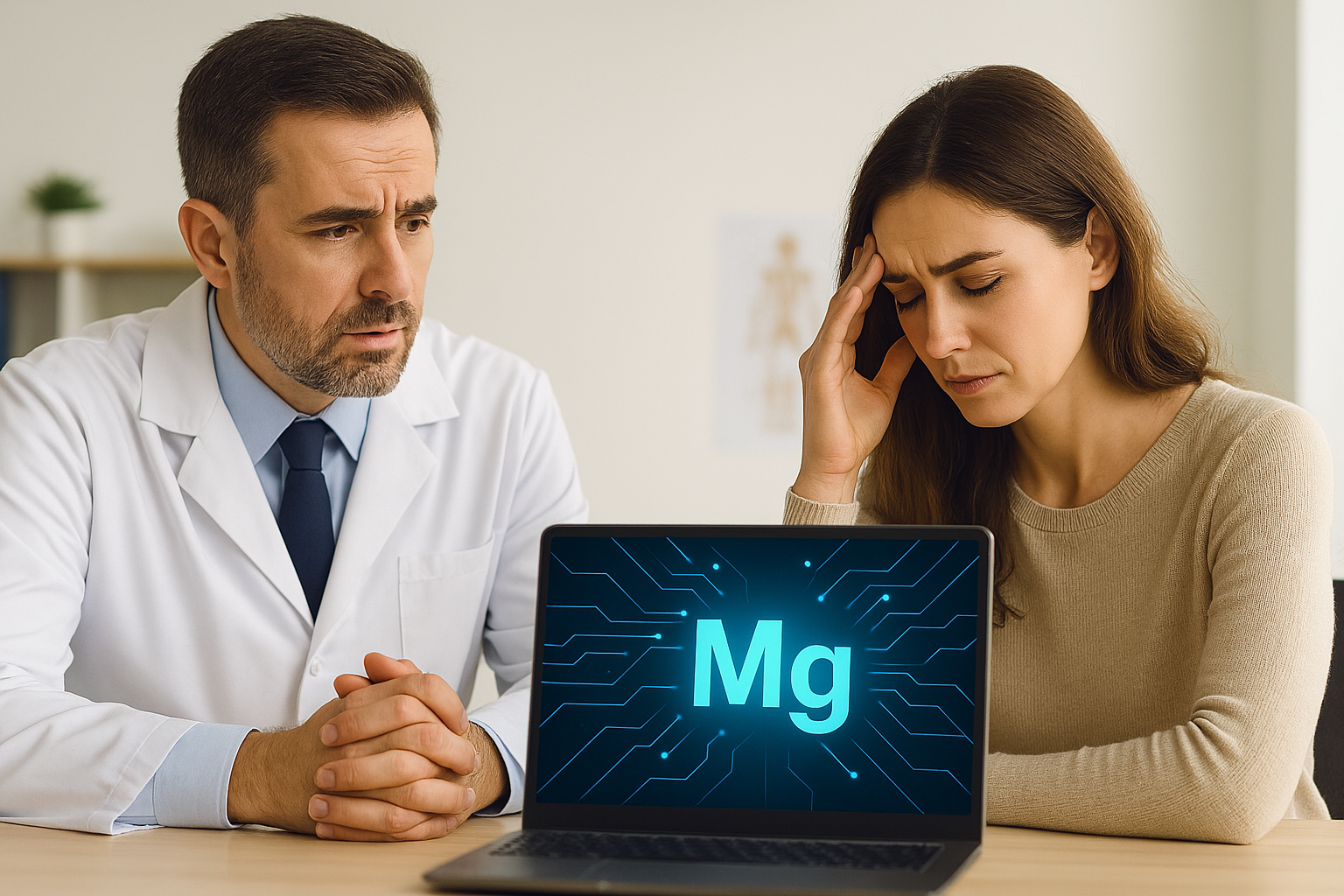Now Reading: Low Magnesium Levels Linked to Increased Depression Risk in Adults
-
01
Low Magnesium Levels Linked to Increased Depression Risk in Adults
Low Magnesium Levels Linked to Increased Depression Risk in Adults

How Low Magnesium Levels May Be Linked to Depression: What You Need to Know
Feeling down more often than usual? Struggling with anxiety, constant fatigue, or foggy thinking? While many things can affect your mood, there’s one nutrient that most people often overlook—magnesium.
Surprisingly, a growing body of research shows that not getting enough magnesium could be tied to a higher risk of depression, especially in adults. Today, we’re going to explore the connection between magnesium deficiency and mental health in simple terms—and what you can do about it.
Let’s dive in.
What Is Magnesium and Why Is It So Important?
Magnesium is a mineral your body needs to function properly. It helps with more than 300 bodily processes, including:
- Regulating blood sugar
- Maintaining healthy bones
- Supporting heart and muscle function
- Keeping nerves and the brain working smoothly
Think of magnesium as the silent helper behind the scenes. You might not notice when you have enough, but if you don’t—it shows.
The Surprising Link Between Magnesium and Depression
So how does magnesium connect with how we feel emotionally?
Researchers have discovered something interesting: low levels of magnesium are often found in people struggling with depression. A key study published in the journal Magnesium Research looked at magnesium intake in over 8,800 adults and found that those with lower magnesium levels had a higher risk of depression.
Let’s break it down with some numbers.
Magnesium Intake vs. Depression Rates
| Magnesium Intake | Depression Rate |
|---|---|
| Low Intake (<184 mg/day) | 22% |
| Medium Intake (185–330 mg/day) | 15% |
| High Intake (>331 mg/day) | 9% |
The trend is clear: as magnesium intake increases, depression rates decrease. But why?
How Magnesium Affects Your Brain and Mood
Magnesium helps regulate neurotransmitters—those are the brain chemicals (like dopamine and serotonin) that affect how we feel every day. These chemicals play a big role in mood regulation, sleep, energy levels, and even how we respond to stress.
Here’s a simple analogy: Imagine your brain is a car. Neurotransmitters are like the fuel, and magnesium is the engine oil. Without enough oil, your “car” might still run—but not very smoothly.
Low magnesium levels mean your brain might be running with a sputtering engine. Over time, this can wear you down emotionally and mentally.
Who’s at Risk of Magnesium Deficiency?
You might be surprised to learn that nearly half of Americans don’t get enough magnesium.
Here are some factors that increase your risk:
- Diet high in processed foods (white bread, fast food, sugary snacks)
- Chronic stress (stress uses up magnesium)
- Certain medications (like diuretics and antibiotics)
- Age – older adults absorb less magnesium from food
- Health conditions such as diabetes or digestive issues (like IBS)
If you check one or more of these boxes, you could be low on magnesium.
How Much Magnesium Do You Need Each Day?
The Recommended Dietary Allowances (RDA) for magnesium vary by age and gender.
| Age Group | Men (mg/day) | Women (mg/day) |
|---|---|---|
| 19–30 years | 400 | 310 |
| 31+ years | 420 | 320 |
Natural Sources of Magnesium: Are You Getting Enough?
Here’s some good news: You can boost your magnesium levels by eating the right foods.
Magnesium-rich foods include:
- Leafy greens (like spinach, kale)
- Nuts and seeds (almonds, pumpkin seeds)
- Whole grains (brown rice, quinoa, oats)
- Legumes (black beans, lentils)
- Avocados
- Dark chocolate (yes—really!)
Let’s look at a few examples of common foods and how much magnesium they offer:
| Food Item | Magnesium per Serving (mg) |
|---|---|
| 1 oz almonds | 80 |
| ½ cup cooked spinach | 78 |
| 1 cup black beans | 120 |
| 1 cup cooked quinoa | 118 |
Should You Take a Magnesium Supplement?
If you’re struggling to get enough magnesium through food, a supplement might help. In fact, several studies have shown that magnesium supplements can improve symptoms of mild to moderate depression—sometimes even as quickly as within a week.
But remember: It’s always best to check with a healthcare professional before starting any supplement, especially if you’re taking other medications.
Real Talk: Personal Experiences Matter
I’ll share something personal here. A few years ago, I was dealing with burnout—long hours, lots of stress, poor sleep, and yes…mood swings and constant tension. At the time, I hadn’t given much thought to my diet. Once I began tracking my nutrition, I realized I was barely getting 200 mg of magnesium a day.
After talking to my doctor, I started taking a gentle magnesium supplement and made small diet tweaks—like adding spinach to my smoothies and swapping white rice for quinoa. Within a few weeks, my energy bounced back. I felt calmer and more clear-headed.
Was it only the magnesium? Maybe not. But it certainly felt like a missing piece of the puzzle.
Tips to Boost Your Magnesium Naturally
Want to raise your magnesium levels the easy way? Try these simple habits:
- Start your morning with magnesium-rich foods – like oatmeal with almonds or a smoothie with spinach and banana.
- Snack smart – a handful of pumpkin seeds can go a long way.
- Go whole – opt for whole grains instead of refined ones.
- Limit processed foods and sugar – these can deplete magnesium levels.
- Reduce stress – through activities like walking, yoga, or journaling.
Final Thoughts: Taking Your Mental Health Seriously
Magnesium might not be a magic fix for depression, but it plays a bigger role in our mental wellness than many of us realize. If you’ve been feeling “off” and can’t quite pinpoint why, consider giving your body a little magnesium love.
Start with small steps—eat better, stay informed, and talk to your healthcare provider. Your mental well-being is worth every bit of effort.
Sources
- Tarleton EK, Littenberg B. Magnesium intake and depression in adults. 2011. Magnesium Research.
- National Institutes of Health Office of Dietary Supplements – Magnesium Fact Sheet
- Eby GA, Eby KL. Rapid recovery from major depression using magnesium treatment. Medical Hypotheses. 2006.
- Healthline – Magnesium and Depression: What’s the Link?









